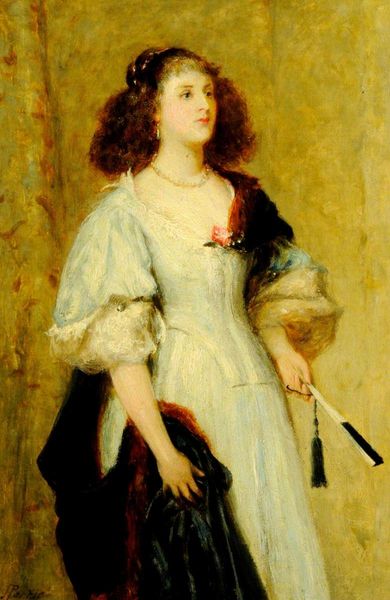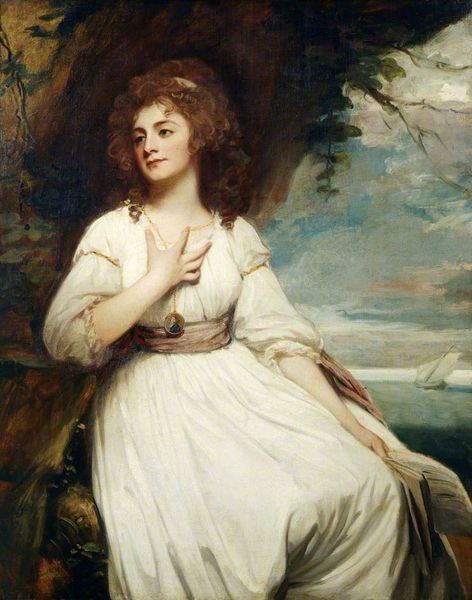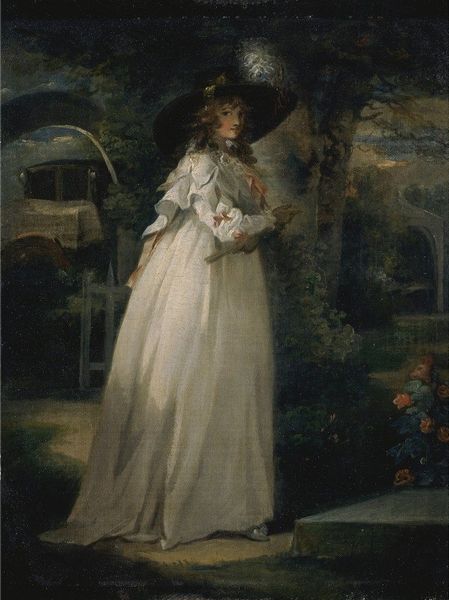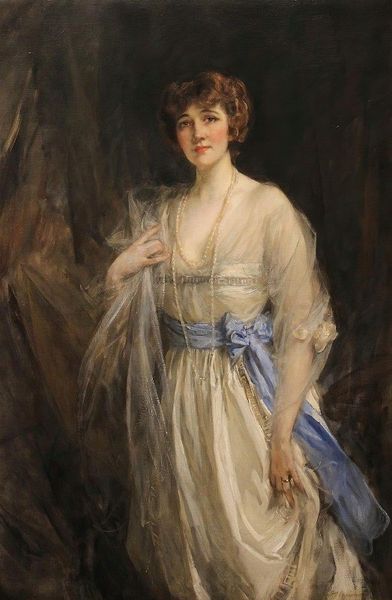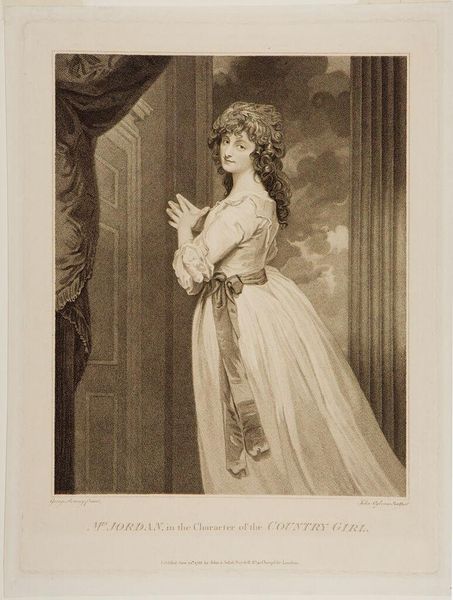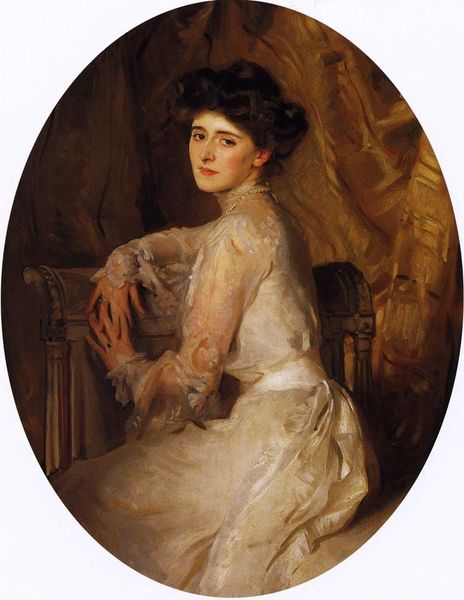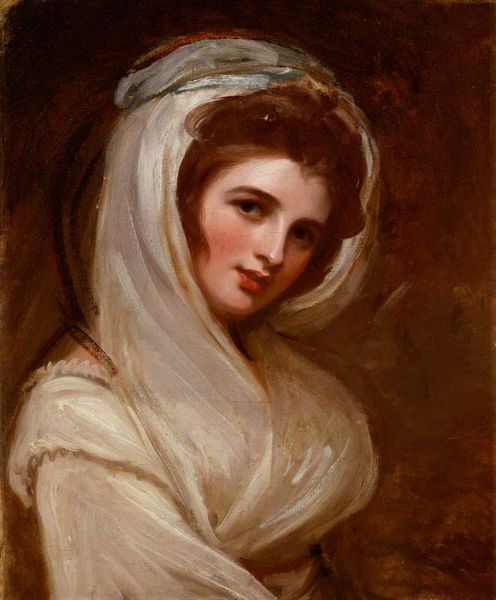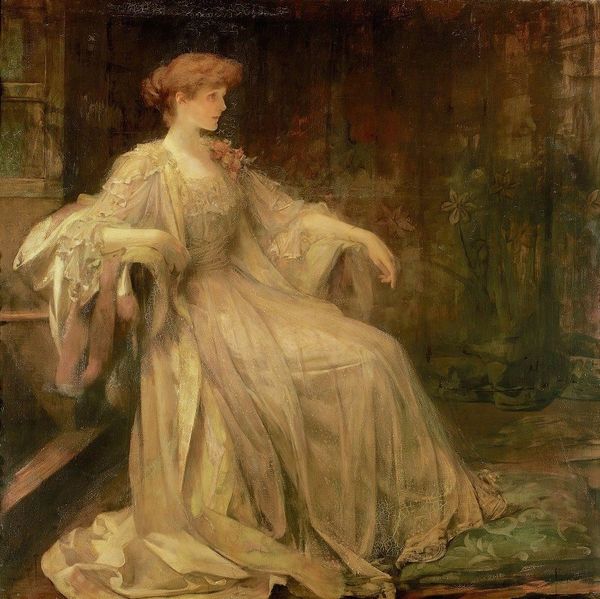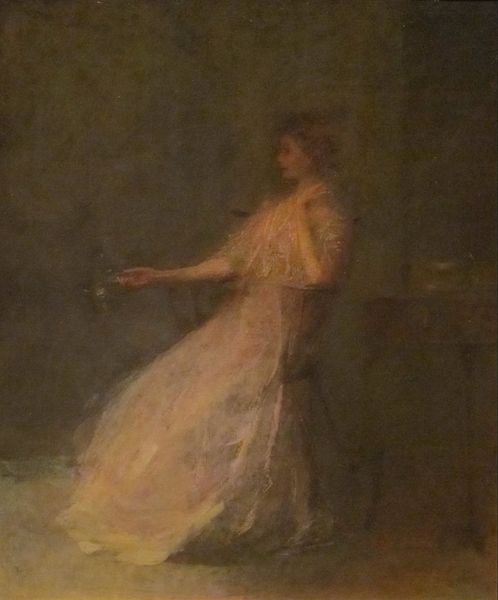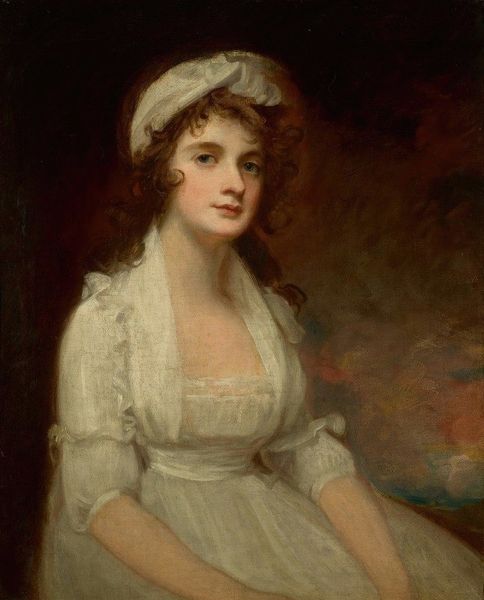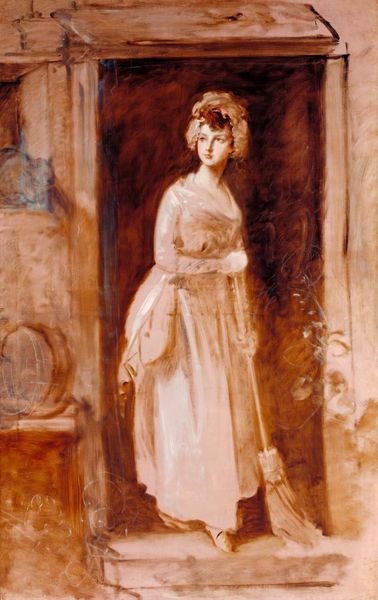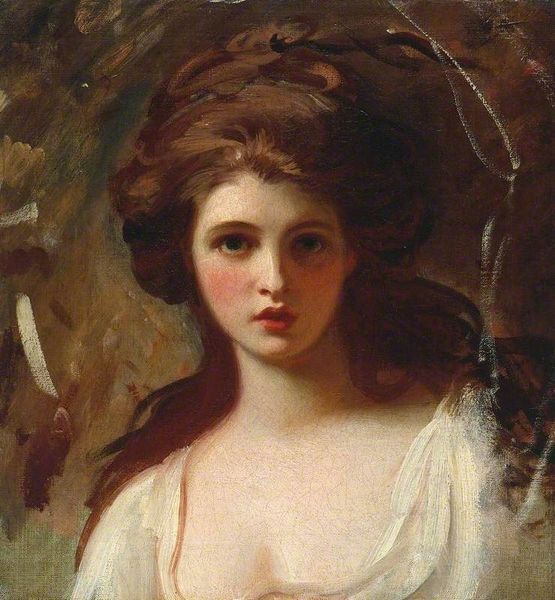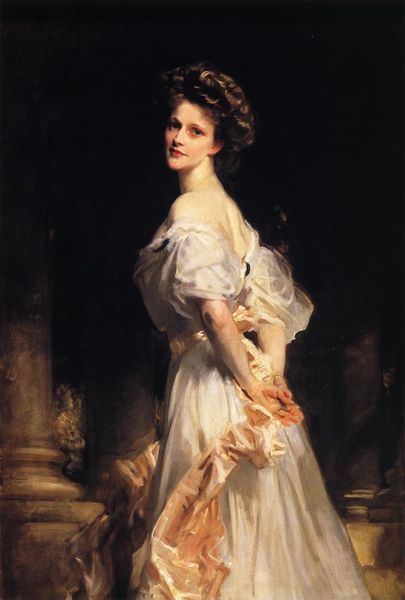
Copyright: Public domain
Editor: Here we have George Romney's oil painting of Dorothea Bland, or Mrs. Jordan, from 1787. She's depicted in character as 'Peggy' from 'The Country Girl.' There's something theatrical about the way she's posed. How do you interpret the social implications of this portrayal, and the staging around her? Curator: Indeed, it's theatrical! We need to remember that in the late 18th century, the theatre held a significant position in public life. Actresses like Mrs. Jordan wielded considerable influence. Romney's choice to depict her in character wasn't just about capturing her likeness, but about showcasing her professional identity. Editor: So, this is more than a personal portrait, it’s a statement about the rising status of actresses? Curator: Precisely. The backdrop, partially visible, suggests a constructed reality. It reminds us that her identity, particularly as Peggy, is deliberately crafted. Romney acknowledges, even celebrates, the constructed nature of celebrity in the burgeoning public sphere. Editor: Does this image suggest a tension, maybe, between her private and public selves? Curator: Absolutely! Think of the layers: Dorothea Bland, the actress, embodying Peggy. This layering points to a broader social dynamic. Artists and the public were fascinated with performers and performance – there's this sense that the rise of actresses goes hand in hand with increased commerce and commodification in this period, too. In other words, celebrity itself could be ‘bought.’ Does that give you other ideas, looking at the way she is represented? Editor: Definitely. The painting seems to subtly comment on how fame can both empower and confine. Thanks, seeing it this way has given me a completely different perspective. Curator: And seeing your perspective allows us to consider it not just as a painting, but also a cultural artifact reflecting the dynamism of its time.
Comments
No comments
Be the first to comment and join the conversation on the ultimate creative platform.
